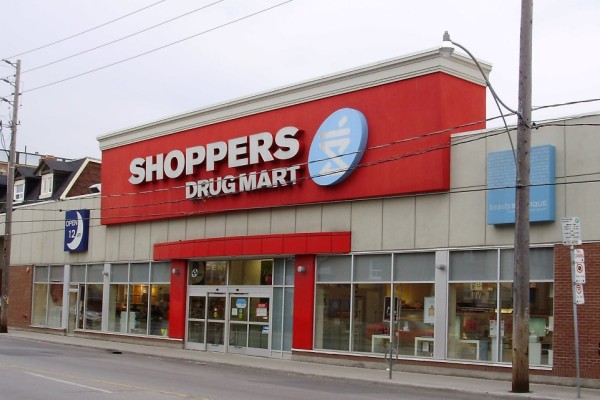Think tank pushes more bad ideas to help ‘fix’ Canada’s news media
It’s no surprise that the Public Policy Forum would have lots of ideas for keeping control of the news in the hands of the rich

Prime Minister Justin Trudeau hosts the Public Policy Forum’s testimonial dinner in Toronto, April 20, 2017. Photo By Adam Scotti/PMO.
Any report published by a so-called “think tank” should be taken with not just a grain of salt but a pound of the stuff since these captured organizations are inevitably only acting out the ulterior motives of their funders. The Vancouver-based Fraser Institute, for example, has pumped out a steady stream of reports for the past 50 years extolling the privatization, tax cuts and deregulation favoured by its libertarian donors. Most think tanks, or public policy institutes as they prefer to be called, are inherently conservative because they are funded by rich people who don’t like paying taxes and instead donate that money to foundations which in turn fund a range of favoured charities. Think tanks that churn out pseudo-scholarly research designed to influence government policy and regulation, or lack thereof, are a favourite recipient. This has resulted in what Joan Roelofs, author of the 2003 book Foundations and Public Policy, calls a “new feudalism” in which democratic institutions are being quietly supplanted by Big Money through foundations.
While most think tanks are conservative, some are liberal, notably including in Canada the Ottawa-based Public Policy Forum. Liberals tend to form government about twice as often as Conservatives, after all, so if you want to influence federal policy it might help to spend a bit of dough on that side of the aisle. The PPF is notorious for its poorly-varnished efforts on behalf of clients, however, such as its 2017 Consultative Forum on China, which the Globe and Mail described as being “bankrolled by major corporations” in order to “persuade Canadians to embrace a free-trade deal with China.”
National Post columnist Terence Corcoran attended the PPF’s annual awards gala that year, which he described as a “Liberal hug-fest filled with deep-eyed handshakes and arm-grabbing congratulatory gestures.” It featured as master of ceremonies a then-shiny Prime Minister Justin Trudeau. “In others words, welcome to Canada’s undrained national policy swamp,” groused Corcoran, “where everybody knows the game—and everybody else’s name.” Trudeau even presented an award to Dominic Barton of the global management consulting firm McKinsey, which was even then notorious for promoting downsizing and offshoring and had helped to burn down the global economy in 2008 by encouraging banks to load their balance sheets with toxic debt. The award to Barton, who also headed Trudeau’s Advisory Council on Economic Growth, “consolidated the PPF as a Liberal policy front,” Corcoran concluded. “That’s not new ground for the PPF, but it has rarely been as dramatically confirmed.” Its hubris caught up with McKinsey in 2024 when it was forced to pay US$600 million to settle lawsuits over its work with drug companies to “turbocharge” opioid sales by using data analysis, which contributed to an estimated 500,000 overdose deaths between 1999 and 2020. That hasn’t stopped the Trudeau Liberals from spending $66 million on sole-sourced McKinsey contracts over the past decade, which a 2023 Radio-Canada investigation found was 30 times that of the previous government.
Perhaps the PPF’s most notorious effort was in promoting the five-year $595 million newspaper bailout announced in 2019, which was recently extended for another five years until 2029 with increased tax credits for publishers. The PPF helped to start the subsidies flowing with its 2017 report The Shattered Mirror, which proposed federal funding of $300-$400 million a year for what it called a “Future of Journalism and Democracy Fund.” It painted such an exaggerated portrait of woe in the newspaper industry, however, as to bring guffaws from those who study it. Dwayne Winseck, a professor at Carleton University, called The Shattered Mirror “badly flawed” and suggested that this was by design. “All along the way it cherry-picks evidence and gooses the numbers that it does use to make its case,” Winseck wrote on his blog. “There is also an acute sense of threat inflation that hangs about it.” The extent to which it made Google and Facebook villains was “both symptomatic of how the report tries to harness such threats to preordained policy ends and a framing that undermines the report’s credibility.” The report’s “willful refusal” to address industry structures, such as sky-high ownership concentration and foreign ownership, was “not innocent,” Winseck charged. “They are part of a process of ‘threat inflation’ with the aim of buttressing the case for the policy recommendations on offer.”
The resulting subsidies have done little more than help to keep hundreds of millions in debt payments flowing to the US hedge funds that own 98 percent of Postmedia Network, which publishes most of Canada’s largest newspapers, such as the National Post, Montreal Gazette, Ottawa Citizen, Calgary Herald and Vancouver Sun. Postmedia now subsists mostly on government handouts, which have helped it send more than $500 million south to its hedge fund masters since 2010, as I showed in my 2023 book The Postmedia Effect. Postmedia has greatly increased its grip on our press in the past decade to collect more and more subsidies, taking over the Sun Media chain in 2015, the Brunswick News chain in 2022, and last year the SaltWire Network chain that dominates Atlantic Canada. It replaces local news in the papers it devours with paid propaganda for Big Oil and its CEO has ordered editors to make their content more favourable to Conservatives. Meanwhile, National Post columnists such as Conrad Black and Jordan Peterson spew hatred for our country and promote its takeover by the US.
The hundreds of millions in federal subsidies have of course not been enough for the masters of our insatiable media, nor have the hundreds of millions in debt payments taken home by US hedge funds, or the hundreds of millions extorted out of Google with the Online News Act. Now the PPF has a new report out titled The Lost Estate with even more ideas for Ottawa to help keep our press alive and kicking us in the knackers. These include encouraging foundations to fund journalism with tax write-offs for donations, making it easier for news media outlets to accept that charity, federal funding to match charitable donations, a public-private-philanthropic capital investment fund to rescue failing news outlets, a tax credit for businesses that advertise in local media outlets and more government spending on local advertising.
Making news a charity case, as I show in my new book Tomorrow’s News, is yet another bone-headed idea. Charitable funding of journalism in the US, where it is easier and where foundations are much richer and more prevalent, has created a so-called “non-profit industrial complex” in which rich donors increasingly call the shots. I instead suggest more funding for public service media here through earmarked digital taxes on the windfall profits some are making from the Internet, including not just Google but also our telecom giants that charge us through the nose for access. This could be distributed more democratically than now through a voucher system that would devolve funding decisions to news consuming Canadians.
It’s no surprise that the Public Policy Forum would have lots of ideas for keeping control of the news in the hands of the rich and powerful, but there are better ideas.
Marc Edge is a media researcher and author who lives in Ladysmith, BC. His books and articles can be found online at www.marcedge.com.










